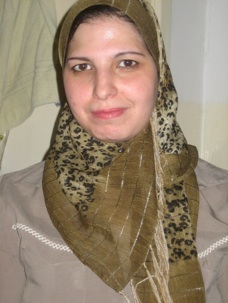Women


It is difficult to know what to say about this: Palestinian women (particularly Moslems) live in such a different world than most western women. It struck me when I visited that, apart from one woman (who organised our tour of Bethlehem University), all hotel managers, guides or bus drivers that I encountered, as also all the people on the commuter bus to Jerusalem, were men. Palestinian women may be educated, but where are they? I think it must be recognised by Palestinians that, while wanting to support them, for the most part we live in a different context with different values than do they. ‘The family’ still seems to play a huge role in Palestinian life. One has the impression that there is no real effort to control the birth rate; indeed that this would be unacceptable. There may be some difference between Moslems and Christians in regard to life-style; but there are few Christians left in Palestine today (see Bethlehem). I have heard it said that Palestinian men, who themselves feel humiliated in the circumstances of occupation, will often take it out on their women (which makes this none the more excusable). The woman at the Palestinian women’s centre we visited (see below) spoke of the need to educate Palestinian women - ‘it’s like a beacon for her if she knows her rights’, for example in relation to the age of marriage. I realised how unusual - in the context of Palestinian society - is my friend who is a member of the Quaker community in Ramallah.
The one glimpse we had into Palestinians women’s world was a meeting at the (Palestinian) Jerusalem Centre for Women. This was an eye-opener as to the relationship between the two communities. These women and an Israeli women’s group had made it their business to make contact with one another and to meet on a regular basis; a situation which had taken panache and courage. It was a big issue for the Palestinian women as to whether they should meet with a group of Israeli women: a stigma could well attach to them in their own community for sitting with Israelis. That looks like normalisation. People would say to them: ‘What are you doing?’ They went ahead however. It had been a shock to find that, for example, Israeli women didn’t know about UN resolution 194. (The UN resolution which has been passed each year since 1948 regarding the Palestinian right of return to the homes they left in the Nakba: see Refugees.) To the Palestinians it is a question of ‘you don’t know, or you don’t want to know?’. Further, there is the question as to what it is that Israeli women will do to help them. There is a burning need to change something in actuality, not just to talk. But for all the problems, this group of women did really seem to have achieved something across the barrier (see the publication below).

Nisreen who lives in Hebron, surrounded by settlers.
Her art-work, which she sells to help the family’s finances.

Executive at the Palestinian Women’s Centre in Jerusalem.
Susan Barry
Specialist Literature:
-
-Women Defying Barrier, Bat Shalom/Jerusalem Center for Women (funded by the European Union).